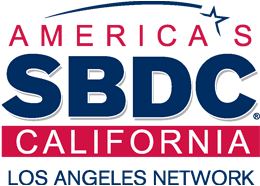The federal government spends hundreds of billions of dollars annually buying products and services from small businesses. Could your company be one of them? Here are 10 steps to breaking into the lucrative world of government contracting.
- Educate yourself. The federal government is vast, and every agency is different. Do your homework to understand each agency, its goals, and whether your business can help achieve those goals. You can find a list of agencies at USA.gov
- Be realistic. Can your business handle the requirements involved in fulfilling a government contract? You’ll need to manage lots of paperwork, maintain certifications, institute quality control procedures and comply with regulations. Know what’s expected–and make sure you can deliver.
- Be patient. The government sales cycle can last years. You need to find and get to know decision-makers, search for opportunities, submit proposals and wait for results and funding. If you need to make money now, contracting may not be the way to go.
- Get registered. To begin, get a DUNS (Data Universal Number System) number from D&B. You need this to register with the Central Contractor Registration (CCR) system, which you must do in order to get contracts and obtain payment.
- Get certified. When you register in CCR, you can self-certify your business as small, disadvantaged, or women-, minority- or veteran-owned. These certifications can give you an edge in competing for contracts, as most agencies “set aside” a certain percentage of spending for these kinds of businesses.
- Learn the basics. The Federal Acquisition Regulation explains all the rules regulating government buyers and sellers. The General Services Administration is the biggest federal purchaser of goods and services. Being listed on the GSA Schedule opens your business to contracting opportunities.
- Get experience. Don’t even think about government contracting unless your business has a track record of success. Past performance is key to landing a federal contract, so you must have a history of customers who will give you excellent references.
- Market your business. Getting listed on a government schedule doesn’t guarantee sales. You still have to market to decision-makers. Use social media tools, networking organizations, and events like those sponsored by the SBDC to network with government buyers in person.
- Think small. The federal government isn’t the only game in town. Contracts with local or state governments are a good way to learn the ropes. Visit Business.gov for information and resources on doing business with state governments.
- Partner up. Subcontracting to a federal government prime contractor is another good way to break into government business even if you have limited capital, resources or experience. You can find prime contractors seeking subcontractors at the GSA website.
Rieva Lesonsky is founder CEO of GrowBiz Media, a content and consulting company that helps entrepreneurs start and grow their businesses. Before launching her business, she was Editorial Director of Entrepreneur Magazine. Follow Rieva at Twitter.com/Rieva and visit SmallBizDaily.com.to sign up for her free TrendCast reports.



